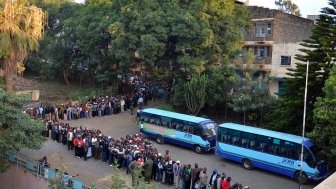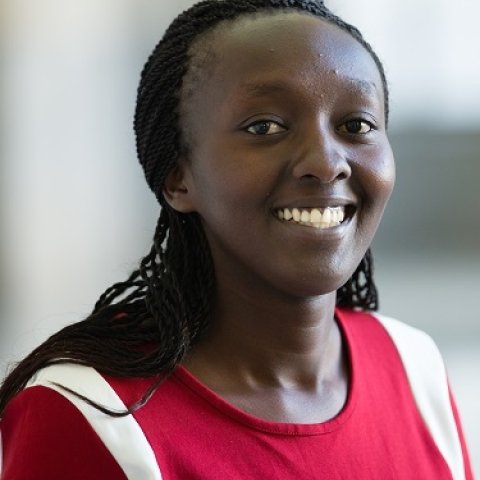Sharon Anyango Odhiambo
Former Southern Voices Network for Peacebuilding Scholar
Professional Affiliation
Communications and Outreach Officer, African Technology Policy Studies Network, Kenya
Expert Bio
Ms. Sharon Anyango Odhiambo is the Communications and Outreach Officer at the African Technology Policy Studies Network (ATPS). A premier institution bringing together researchers, policymakers, private sector actors, and the civil society, ATPS promotes the generation, dissemination, use, and mastery of science and technology for African development, environmental sustainability, and global inclusion. Prior to this she worked at Elective Africa and coordinated student placements in Africa for medical internships, business treks, and gap year programs. She has also worked at Startimes Kenya, a digital media company.
Her research interests include governance, media, elections, policy, health, women’s and gender empowerment, peace journalism, conflict resolution, and forcibly displaced persons.
She holds a bachelor’s degree in Journalism and Mass Communication from the Technical University of Kenya. She is a Southern Voices Network for Peacebuilding Scholar at the Wilson Center.
Wilson Center Project
“The Role of Media in Promoting Peace During Elections in Africa: Lessons from Kenya”
Project Summary
Millions of people around the globe depend on media for information. The media plays a crucial role during elections by providing the people with information that is objective and truthful, however, in some African countries the media has had great challenges in its reporting and has been blamed for instigating violence. In a number of countries, including Kenya, Nigeria, and Rwanda, media reporting has been accused of instigating election-related violence.
Kenya suffered greatly from the 2007 post-election violence, and the media holds a share of the blame for the violence that was witnessed in the country. Mr. Joshua Arap Sang, a former radio journalist was prosecuted at the International Criminal Court, though his case was later terminated, for allegedly inciting one community against the other while reporting on the radio during the election period.
This research will seek to identify the role of the media in promoting peace during elections in Africa, efforts by Kenyan media and various stakeholders to manage election conflicts, and the regulatory frameworks required to ensure that the media conduct their work professionally, especially during elections in Africa. A comparative study of how the media reports elections in Africa and the United States will also be integrated into the research in order to provide best practices and lessons going forward for both the United States and African countries. Primary and secondary data will be utilized in the course of the research. Primary data will be collected from renowned individuals and institutions through interviews while secondary data will be obtained through published and unpublished literature including journals, newspapers, videos, magazines, etc.
Insight & Analysis by Sharon Anyango Odhiambo
- Publication
- Conflict Resolution and Peacebuilding
Africa: Year in Review 2022
- By
- Mark Stamilio,
- Mziwandile Ndlovu,
- Deborah Carey,
- and 34 more
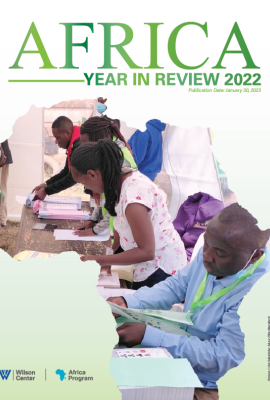
- Publication
Africa: Year in Review 2017
- By
- Reverend Eugene Goussikindey,
- Grant Harris,
- Ambassador Nureldin Satti,
- and 16 more

- Blog post
Fake News Dominates Ahead of Kenya’s Elections
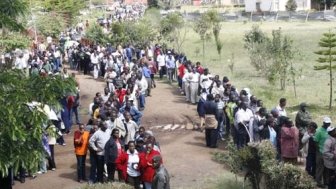
- Blog post
A Credible Electoral Body Is Crucial for Peaceful Elections: Lessons for the 2017 Kenyan Elections
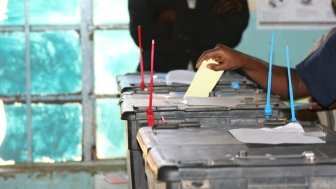
- Publication
- Conflict Resolution and Peacebuilding
The Media and Election-Related Violence in Africa: Lessons from Kenya
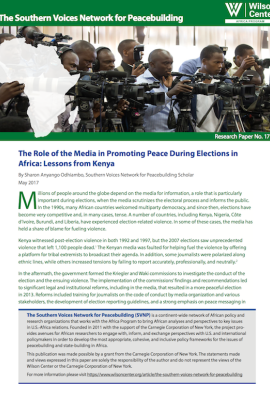
- Blog post
Internet Shutdowns during Elections

- Article
- Democracy
SVNP Scholar Sharon Anyango Discusses the Upcoming 2017 Kenyan Elections on VOA
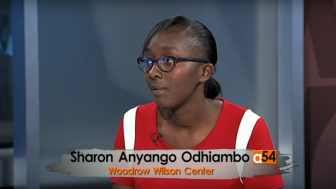
- Blog post
Ten Years Later, Victims of Kenya's 2007 Post-Election Violence Still Looking for Assistance
